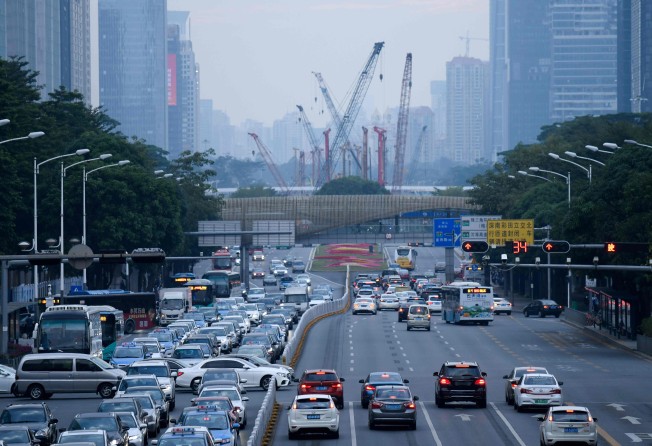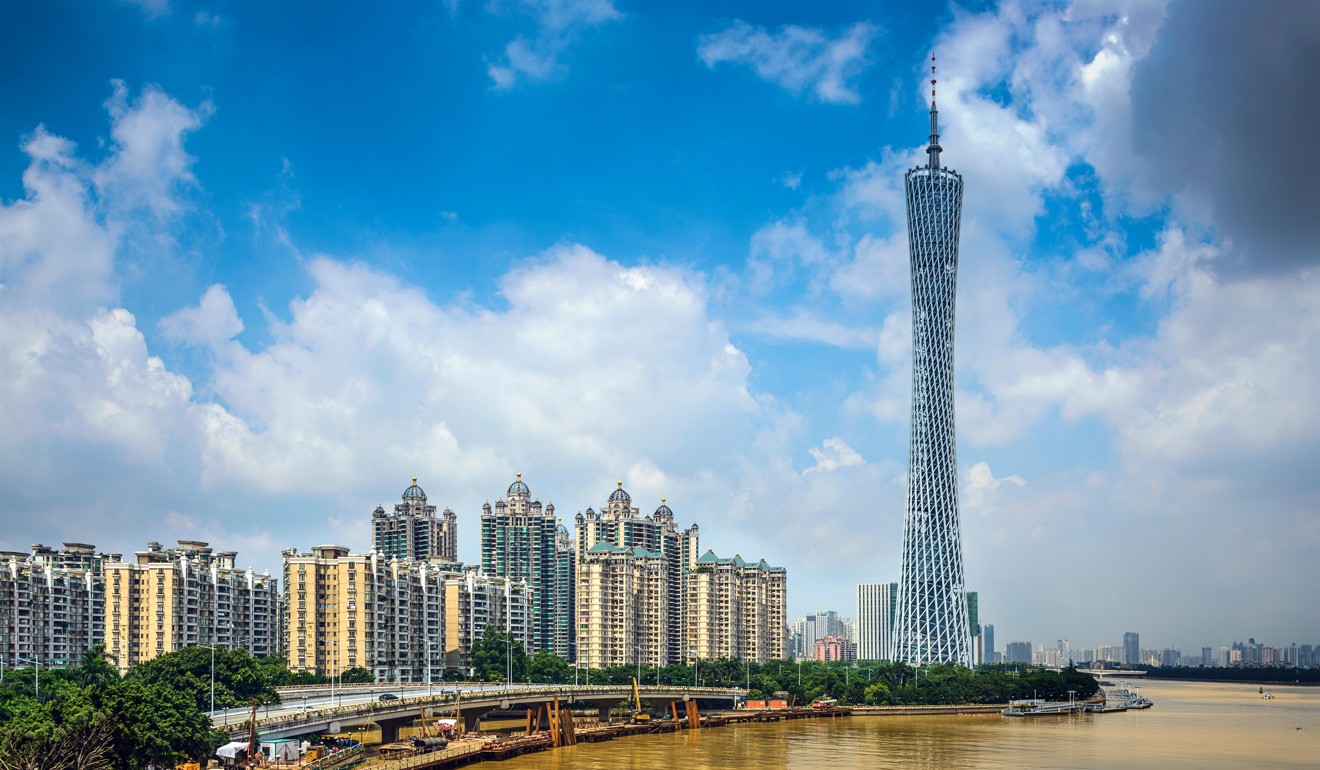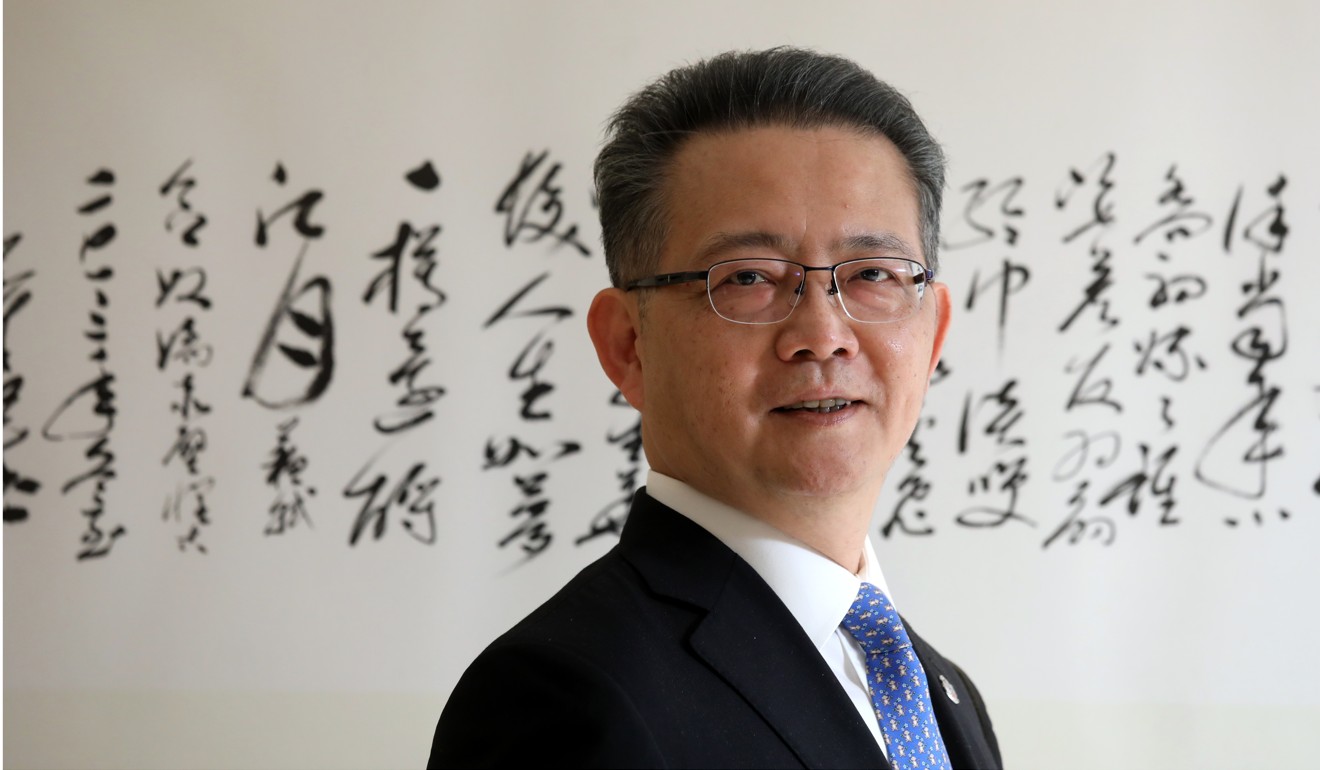
Greater Bay Area is perfect stepping stone for Hong Kong start-ups to go global: former minister
- Greater Bay Area market of 70 million potential customers offers perfect environment for Hong Kong firms to expand, former financial secretary says
- But members of the financial community say Hong Kong companies are yet to enjoy the benefits of the vast market and that doors must be opened up further

The Greater Bay Area could just be the ticket for Hong Kong start-ups and companies to go global, but it will only work if restrictions are eased further, a former minister says.
Chan Ka-keung, the former Secretary for Financial Services and the Treasury and now a senior adviser to home-grown unicorn online lender WeLab, told the Post in an interview that because of Hong Kong’s limited scope given its population of 7 million, it is imperative that the city’s start-ups tap the Greater Bay Area market of 70 million people.
“If start-ups in Hong Kong could enter the Greater Bay Area, they can then build up scale and size that are big enough to enter other overseas markets,” said Chan. “Without scale, it is very hard for them to enter other markets. This is why the Greater Bay Area is so important.”

The Greater Bay Area refers to the Chinese government’s scheme to link Hong Kong and Macau with the southern cities of Guangzhou, Shenzhen, Zhuhai, Foshan, Zhongshan, Dongguan, Huizhou, Jiangmen and Zhaoqing into an integrated economic and business hub, rivalling Silicon Valley.
To boost Hong Kong’s technology and innovation development, Chief Executive Carrie Lam Cheng Yuet-ngor said in September that her government would set aside HK$28 billion (US$3.6 billion) for research and development in universities and re-industrialisation for innovation and technology.
This was in addition to the HK$50 billion that Hong Kong’s Financial Secretary Paul Chan Mo-po earmarked in his budget for 2018-2019. Another HK$10 billion was allocated for the sector in the budget a year earlier.
The WeLab adviser suggested the city should also tap start-ups from the mainland and overseas.
“Hong Kong is a strong brand as it has sound regulations and talent pool. Start-ups in the Greater Bay Area can use Hong Kong as a gateway for global expansion, while international firms can come here to enter China,” he said.

Chan cited WeLab as an example of how a Hong Kong start-up has used the Greater Bay Area market to grow in size and scale.
The company co-founded by former banker Simon Loong Pui-chi in 2013, started as an online money lender in Hong Kong. It then expanded into the Greater Bay Area with a partner and now offers financial services to over 30 million customers in Hong Kong and China.
Last September, the company entered Indonesia through a joint venture with conglomerate Astra International. Astra WeLab Digital Arta offers mobile lending products to retail consumers and fintech solutions to enterprise customers in the Southeast Asian country.

But members of the financial community said that hardly any Hong Kong firms have enjoyed the benefits of the vast Greater Bay Area market as it has not yet fully opened up. Hong Kong-based banks, insurance firms and brokers want Beijing to lower capital requirements to make it easier to set up in China. Other professionals want to be allowed a wider scope for doing business and better tax incentives.
Authorities are looking at tax incentives, similar to those offered by special economic zones on the mainland, to attract more entrepreneurs and hi-tech talent to the Greater Bay Area, but nothing has materialised so far.
Patrick Law Fu-yuen, president of the Hong Kong Institute of Certified Public Accountants, said that he wants to see more opening up of the Greater Bay Area for accounting firms from the city.

At present, Hong Kong accountants can open shop in the bay area but only few have done because of tax concerns. Hong Kong accountants who stay over 183 days on the mainland have to pay tax which is higher than Hong Kong.
“We would like to see some flexibility over tax payments for Hong Kong accountants,” said Law. “We would also like to widen our scope of business and offer consultancy services. These would encourage more Hong Kong accounting firms to expand in the Greater Bay Area.”
Christopher Cheung Wah-fung, a Hong Kong lawmaker representing the financial services sector and a veteran stockbroker, urged the Hong Kong government to lobby Beijing to lower the capital requirement to HK$100 million from HK$500 million for the city’s brokerage firms to enter the Greater Bay Area.
“Without a lowering of the threshold, it is impossible for many local brokers to enter the Greater Bay Area. The median capital of the more than 500 brokers in Hong Kong is HK$100 million. The lower threshold would allow more local brokers to enter into the Greater Bay Area,” Cheung said.